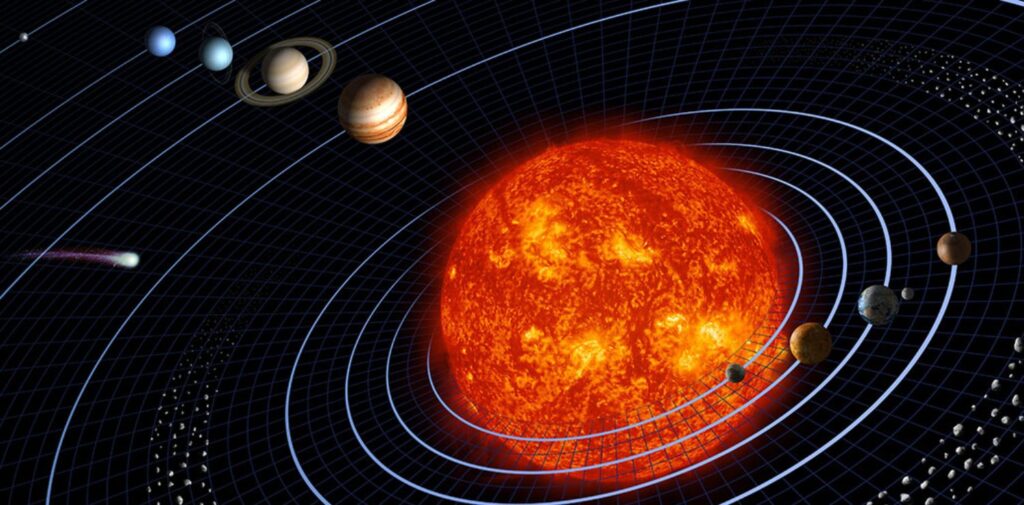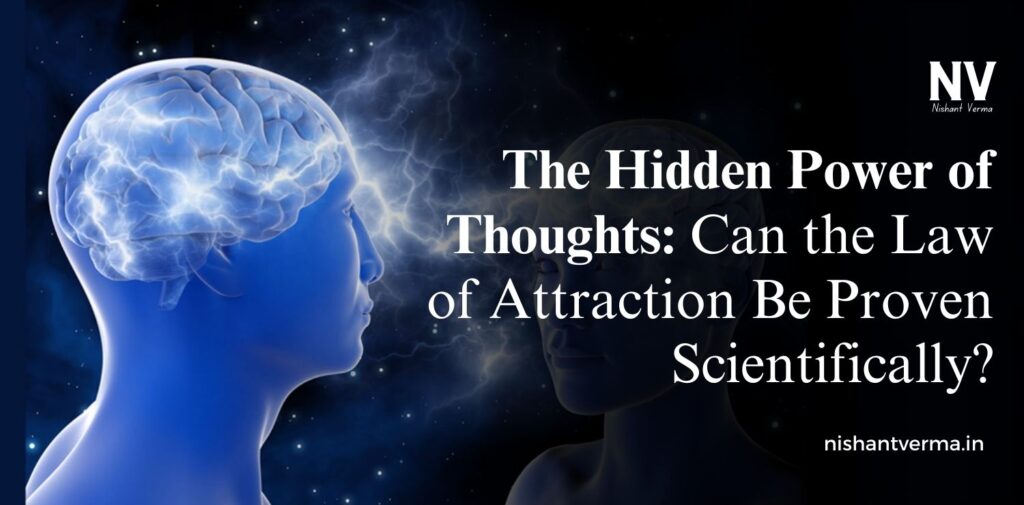In recent years, the Law of Attraction has gained a lot of attention, especially in India, thanks to books like The Secret, spiritual gurus, motivational speakers, and social media influencers. Many people believe that this “law” can change lives by attracting positive or negative experiences through thoughts and emotions. But a big question remains—can the Law of Attraction be proven scientifically? Let’s explore this idea in a simple and understandable way.
What is the Law of Attraction?
The Law of Attraction is based on the belief that “like attracts like.” This means that whatever you think about, focus on, or feel strongly about, you attract into your life. If you think positively, good things will happen. If you think negatively, you will face problems.
For example, if a person constantly imagines being successful, they are believed to attract success. If someone fears failure, that fear may bring failure closer to them. This idea is not new. Ancient Indian philosophies like Vedanta and teachings of Lord Krishna in the Bhagavad Gita also talk about the power of the mind and thoughts.
But does this really work? Is there any proof that it’s more than just wishful thinking?

Why So Many People Believe in It
One major reason people believe in the Law of Attraction is personal experience. Many people say they achieved their dreams—whether it’s a better job, good health, or a happy relationship—just by thinking positively and visualising their goals. In India, spiritual leaders like Sadhguru and Sri Sri Ravi Shankar often talk about the importance of inner thoughts, vibrations, and intentions.
Moreover, in Indian culture, the power of prayer, sankalp (firm resolve), and mantras has always been seen as powerful. The idea that your inner world affects your outer world is deeply rooted in Indian traditions. So the Law of Attraction naturally fits into this belief system.

What Does Science Say?
Now, coming to the core question—can science prove the Law of Attraction?
Science works based on experiments, data, and repeatable results. The Law of Attraction, on the other hand, is a more abstract and personal experience. Still, let’s look at a few areas of science that may support some ideas behind this law.
- The Power of the Mind: Neuroscience shows that our thoughts can change the structure of our brain. This is called “neuroplasticity”. When you think positively and focus on a goal, your brain rewires itself to make that goal easier to achieve. This supports the idea that focusing your mind on success can influence your actions and outcomes.
- Reticular Activating System (RAS): This is a part of your brain that acts like a filter. When you set a goal, your brain starts noticing things related to that goal. For example, if you decide to buy a red car, suddenly you’ll see red cars everywhere. It’s not magic—it’s your brain focusing on what matters to you. This gives the impression that the universe is responding to your thoughts, but it’s really your brain doing the work.
- Placebo Effect: In medicine, sometimes a patient improves just because they believe the treatment will work—even if it’s just a sugar pill. This shows how belief can have a real effect on the body. Similarly, believing that you will succeed can lead to actions that bring success.
- Emotional and Physical Health: Studies show that positive thinking reduces stress, boosts immunity, and leads to better heart health. This doesn’t directly prove the Law of Attraction, but it shows that thinking positively has real-life benefits.
So, while science doesn’t directly prove that your thoughts send out energy into the universe and attract results, it does support the idea that positive thinking leads to better outcomes in life.
Misunderstandings and Limitations
It’s also important to know what the Law of Attraction is not. Many people misunderstand it and think they just need to sit quietly and imagine money or success, and it will come. That’s not how it works.
The Law of Attraction does not replace action. Positive thoughts alone won’t get you a job or pass your exams. You must work hard, study, and take action. Think of it like a seed—you need to plant it (set a goal), water it (take action), and protect it (stay positive) to get the fruit (result).
Also, it’s not fair to blame someone’s bad situation entirely on their negative thinking. There are many external factors like poverty, illness, or social conditions that affect people’s lives. Saying someone attracted pain or disease through their thoughts is both insensitive and unscientific.
How You Can Use It in Your Life
Even if the Law of Attraction is not proven scientifically in the way physics or chemistry is, you can still use its principles to improve your life. Here’s how:
- Set clear goals: Know what you want in life. Be specific. Instead of saying “I want to be rich,” say “I want to earn ₹1 lakh per month by next year.”
- Visualise your success: Spend a few minutes daily imagining your goals as already achieved. Feel the happiness it would bring.
- Stay positive: Avoid negative self-talk. Replace “I can’t do this” with “I am learning to do this.”
- Take inspired action: When opportunities come, grab them. Work hard and stay committed to your path.
- Be patient: Results don’t come overnight. Stay consistent, and don’t give up easily.

The Indian Connection to Law of Attraction
India is a land where spirituality and science have often gone hand in hand. Ancient yogis spoke of vibrations, chakras, and the power of intention thousands of years before modern science even knew these words. Practices like meditation, chanting mantras, and doing daily sankalp (mental affirmation) are all based on focusing the mind and setting intentions.
The Law of Attraction, when seen through this lens, is not a foreign concept but a modern packaging of ancient Indian wisdom. Whether or not it is proven by science, it has helped many people lead better, more hopeful lives.
Conclusion: Worth Believing In?
To sum up, the Law of Attraction is not fully proven by science, but many of its related ideas—like the power of positive thinking, goal-setting, and mindset—are supported by psychology and neuroscience.
You don’t have to blindly believe in magic. Just start with a positive thought, a clear goal, and consistent action. Whether you call it the Law of Attraction, karma, or simply determination, the message is the same: your mind has great power. Use it wisely.




